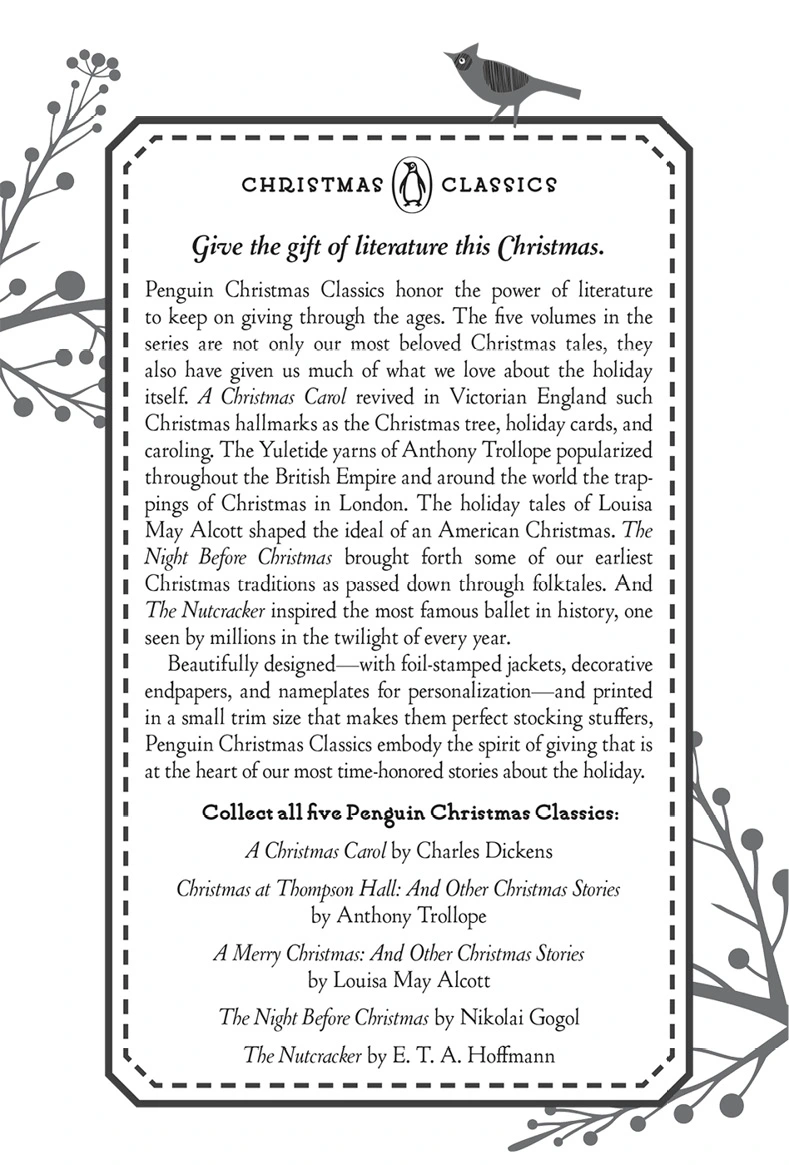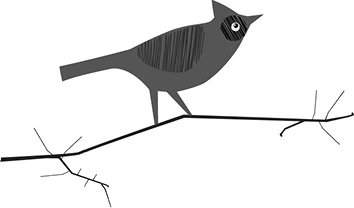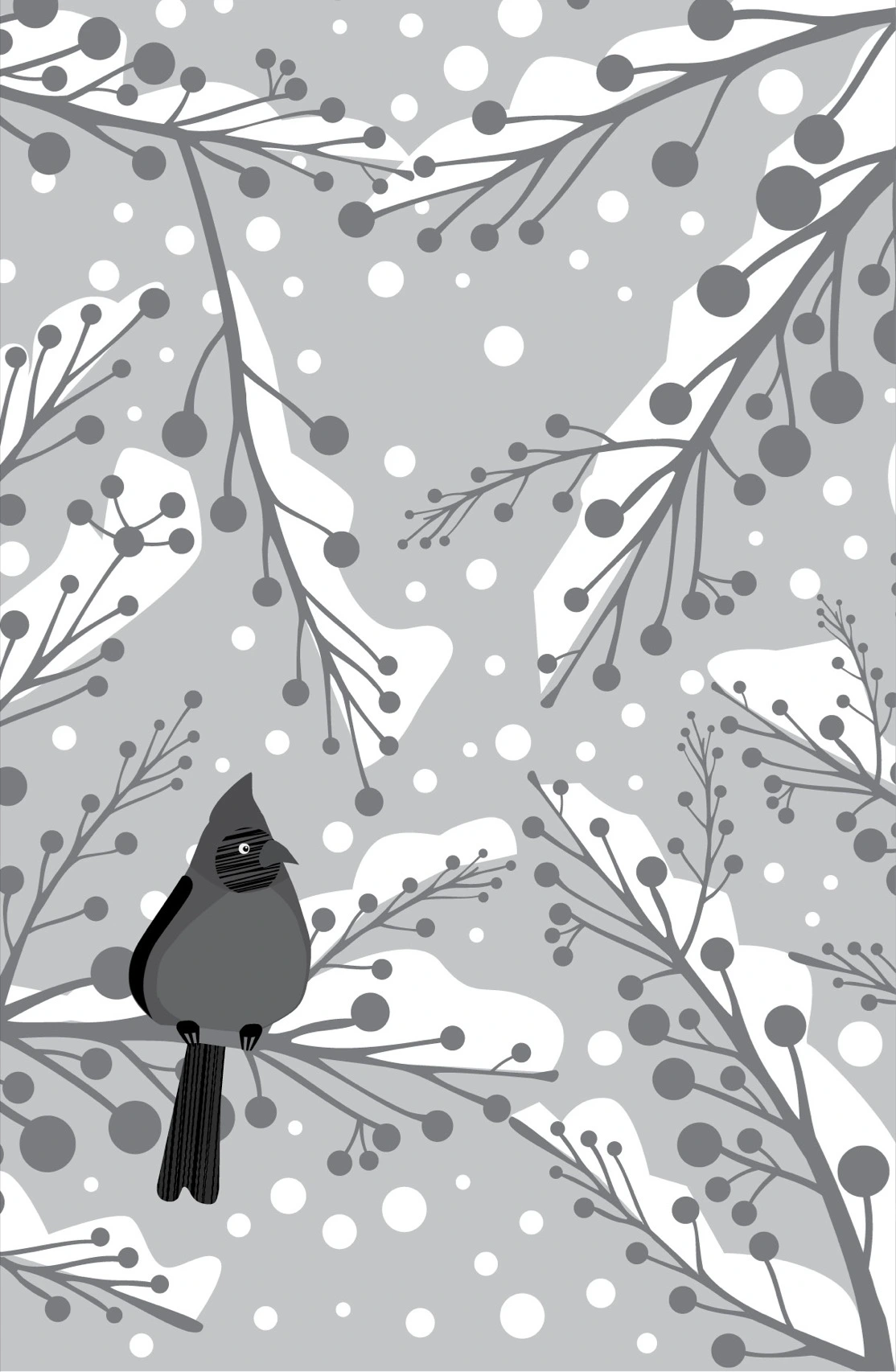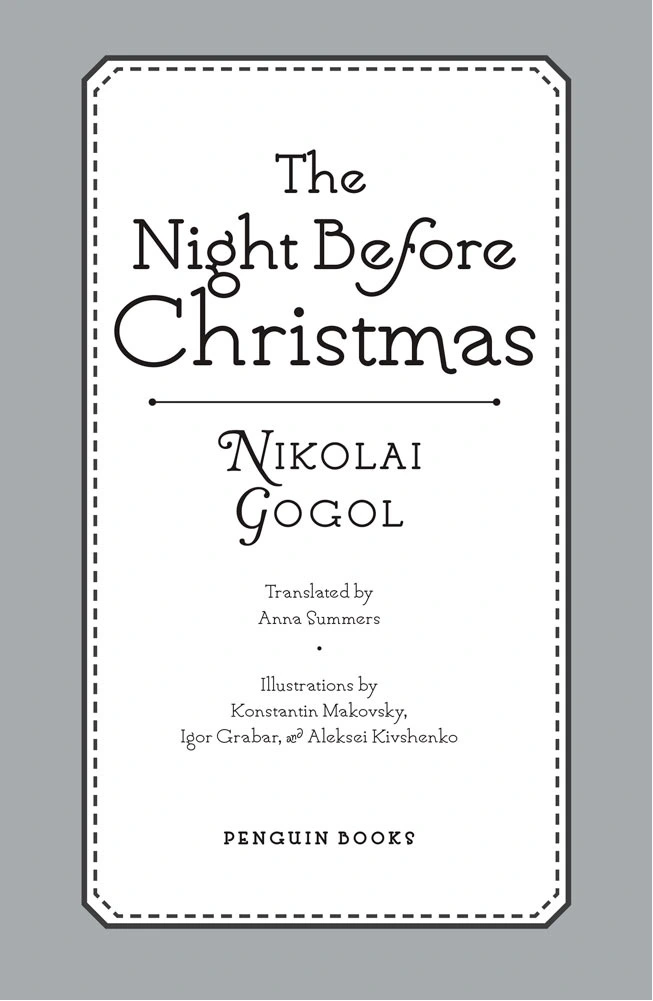The Night Before Christmas

THE NIGHT BEFORE CHRISTMAS

Written in 1831 by the father of Russian literature, this uproarious tale tells of the blacksmith Vakula’s battle with the devil, who has stolen the moon and hidden it in his pocket, allowing him to wreak havoc on the village of Dikanka. Both the devil and Vakula are in love with Oksana, the most beautiful girl in Dikanka. Vakula is determined to win her over; the devil, equally determined, unleashes a snowstorm to thwart Vakula’s efforts. Zany and mischievous, and drawing inspiration from the folktales of Gogol’s far-flung village in Ukraine, The Night Before Christmas is the basis for many movie and opera adaptations, and is still read aloud to children on Christmas Eve in Ukraine and Russia.
PENGUIN  CLASSICS
CLASSICS
THE NIGHT BEFORE CHRISTMAS
The son of a small landowner, Nikolai Gogol (1809–52) became famous for his short stories, among them “The Overcoat” and “Taras Bulba” and those in the two volumes of Evenings on a Farm Near Dikanka, a collection based on Ukrainian folklore. He held a chair in history at the University of St. Petersburg, and in 1836, when his controversial comic play The Inspector General was produced, he was hailed by critics as the head of the Naturalist school. The next twelve years he spent in voluntary exile, mainly in Rome. His panorama of Russian life, Dead Souls, was published in 1842 and was an immediate success. Gogol spent ten years working on a sequel; it was never to see publication.
Anna Summers is the editor and translator of two books by Ludmilla Petrushevskaya, There Once Lived a Mother Who Loved Her Children, Until They Moved Back In: Three Novellas and There Once Lived a Girl Who Seduced Her Sister’s Husband, and He Hanged Himself: Love Stories, and the coeditor and cotranslator of Petrushevskaya’s There Once Lived a Woman Who Tried to Kill Her Neighbor’s Baby: Scary Fairy Tales. Born and raised in Moscow, she now lives in Cambridge, Massachusetts, where she is the literary editor of The Baffler.
Konstantin Makovsky (1839–1915) was one of the most celebrated artists in the Russian Empire in the nineteenth century.
Igor Grabar (1871–1960) was a student of Konstantin Makovsky’s and a celebrated painter in his own right. He later became one of the premier art administrators in the Soviet Union, personally advising Joseph Stalin.
Aleksei Kivshenko (1851–95) was a Russian painter acclaimed for his depictions of historical subjects, especially battles.


BookishMall.com
Published by the Penguin Group
Penguin Group (USA) LLC
375 Hudson Street
New York, New York 10014

USA | Canada | UK | Ireland | Australia New Zealand | India | South Africa | China
penguin.com
A Penguin Random House Company
This translation first published in Penguin Books 2014
Translation copyright © 2014 by Anna Summers
Penguin supports copyright. Copyright fuels creativity, encourages diverse voices, promotes free speech, and creates a vibrant culture. Thank you for buying an authorized edition of this book and for complying with copyright laws by not reproducing, scanning, or distributing any part of it in any form without permission. You are supporting writers and allowing Penguin to continue to publish books for every reader.
Illustration credits
Aleksei Kivshenko
Igor Grabar
All other illustrations by Konstantin Makovsky
LIBRARY OF CONGRESS CATALOGING-IN-PUBLICATION DATA
Gogol’, Nikolai Vasil’evich, 1809–1852, author.
[Noch’ pered Rozhdestvom. English]
The night before Christmas / Nikolai Gogol ; translated by Anna Summers ; illustrations by Konstantin Makovsky, Igor Grabar, and Aleksei Kivshenko.
pages : illustrations ; cm
ISBN 978-0-698-17093-3
I. Summers, Anna, translator. II. Makovskii, Konstantin Egorovich, 1839–1915, illustrator. III. Grabar’, Igor’ Emmanuilovich, 1871–1960, illustrator. IV. Kivshenko, Aleksei Daniilovich, 1851–1895, illustrator. V. Title.
PG3333.N63 2014
891.73'3—dc23 2014012788
Version_1
Contents
About the Author
Title page
Copyright page
The Night Before Christmas


THE DAY OF CHRISTMAS EVE ENDED, AND the night began, cold and clear. The stars and the crescent moon shone brightly upon the Christian world, helping all the good folks welcome the birth of our Savior. The cold grew sharper, yet the night was so quiet that one could hear the snow squeak under a traveler’s boots from half a mile away. Caroling hadn’t yet begun; village youths weren’t yet crowded outside the windows waiting for treats; the moon alone peeked through, as though inviting the girls to finish up their toilette and run out onto the clean, sparkling snow. Just then one of the chimneys began to belch clouds of black smoke, and along with them, straddling a broom, flew out a witch. If Sorochintsy’s property assessor happened to be passing by on a troika of horses in his resplendent winter attire, he surely would have noticed the witch, for that remarkable man noticed everything: every piglet, every bolt of cloth in a housewife’s trunk, each household article her husband left at the tavern on Sunday.
1 comment